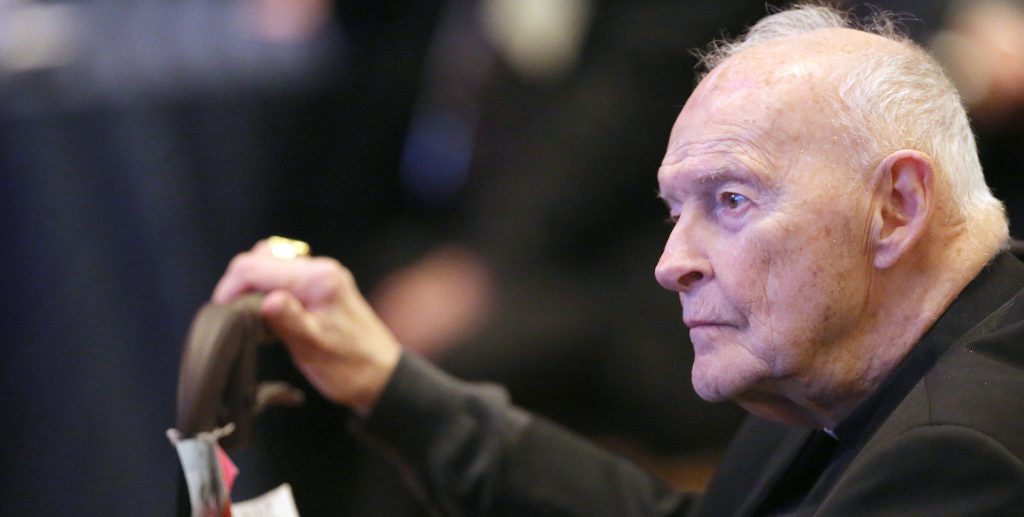Laicization is much in the news lately, especially since it was announced Feb. 16 that it has been levied on now-Mr. Theodore McCarrick. McCarrick was formerly a member of the college of cardinals and had served as bishop of the Diocese of Metuchen, New Jersey, and Archbishop of the Archdiocese of Newark and the Archdiocese of Washington.
So what does it mean?
According to the Church’s law, when a man is ordained, he becomes a cleric. Status as a cleric in the law comes with certain rights, privileges and obligations. Those are dispensed in the case of laicization, which comes by imposition – as in a penalty for canonical crimes, like sexual abuse or heresy, or at the request of a cleric who may wish to leave active ministry, such as to pursue marriage.
Clerical status enables one to function in public ministry. One can remain a cleric and be removed from public ministry. That was the case in McCarrick’s situation until his laicization. It also is the status of many clerics who have been removed from public ministry following credible accusations of sexual abuse. In some cases, Church officials opt to not laicize priests so that they remain accountable to Church authorities. Additionally, many clerics do not have a means to provide for themselves, so they remain clerics despite such circumstances because of charity and justice.
Moreover, when a man is ordained a priest and bishop, he receives a sacramental character that is indelible. Even when laicized, they do not lose that sacramental grace; it is a gift bestowed by Christ and cannot be taken away. A laicized priest or bishop is still a priest or bishop. McCarrick is still a bishop. However, he cannot function legitimately as a bishop in the name of the Church, nor is he able to present himself as a bishop in any way. For all intents and purposes, he now has the rights and privileges of any lay member of the Church.
That being said, there can still be some prohibitions given even to a laicized cleric, such as being exempt from serving as an extraordinary minister of Holy communion, etc. It is unclear what additional prohibitions may relate to McCarrick’s situation beyond loss of the clerical state.
It has been standing practice not to laicize bishops because of the risks involved — not least of which is the possibility to ordain priests and bishops without approval or consent of the Holy See. Laicized priests can still absolve sins and anoint anyone in danger of death who wishes to receive the sacrament.
Michael R. Heinlein is editor of Simply Catholic. Follow him on Twitter @HeinleinMichael.

